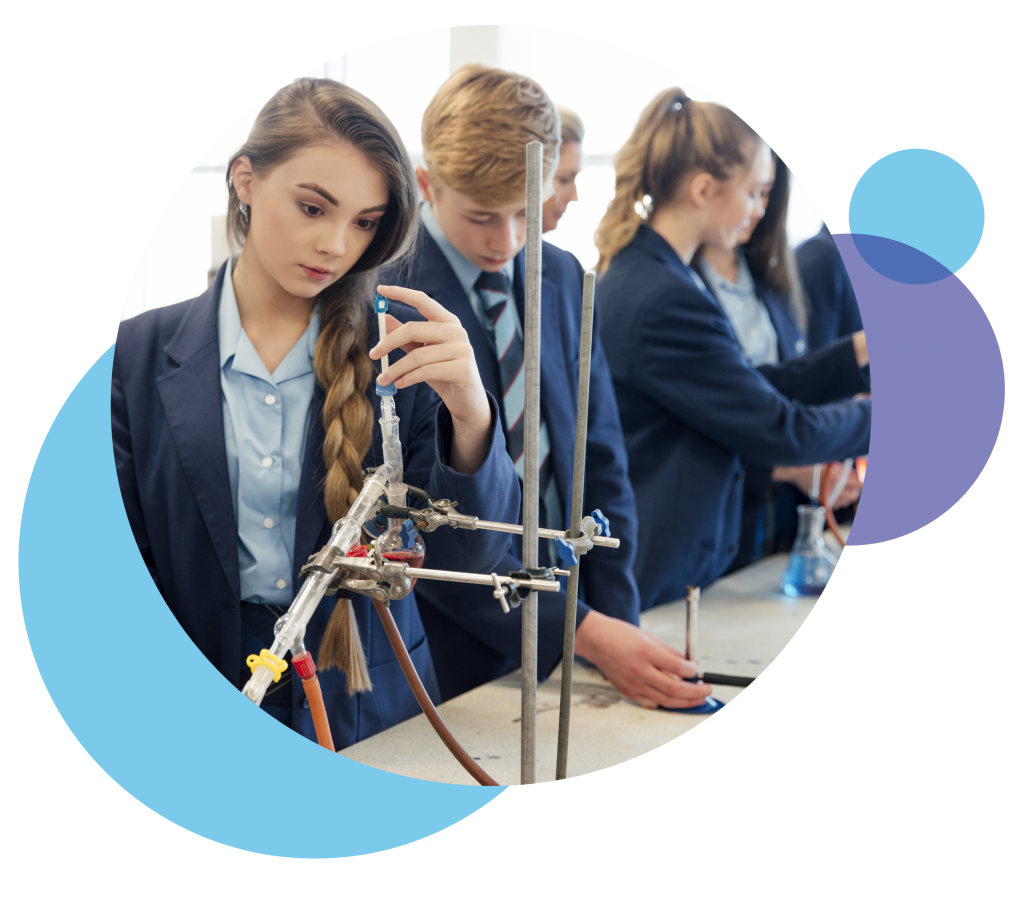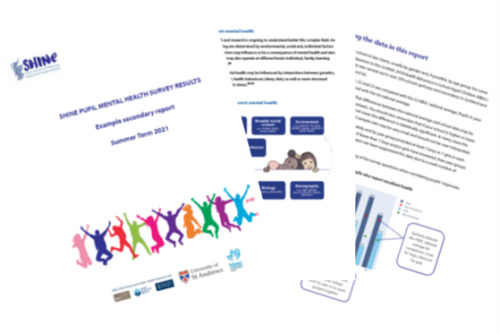Working with schools

SHINE provides an infrastructure for school-based health improvement research in Scotland with the aim of narrowing the gap between schools, policy makers and academic researchers. Specifically it will seek to:
- Help schools identify their key health and wellbeing needs using data collected using research validated measures
- Increase the availability and relevance of research evidence for use in school planning and development;
- Provide schools and policy makers with guidance on evidence-based health promotion programmes and interventions;
- Facilitate and support school-led initiatives to promote young people’s health;
- Develop closer links between schools and researchers to produce collaborative evidence which is more responsive to school needs;
- Advise schools on best practice regarding external requests for participation in other research studies.
Benefits of SHINE for schools
Schools that join the Network will be offered:
Individual school feedback reports on findings from the Health Behaviour in School-aged Children (HBSC) Survey in Scotland, if your school participates in the HBSC survey, which happens every 4 years.1
Access to use the SHINE Online Pupil Mental Health Survey in order to collect data, receive a school-level data report and use the evidence to track, monitor and plan improvements in pupil wellbeing. This survey can be used by pupils from P6 to S6. There is no cost for the report.
Resources to support school health improvement activities. These will include research briefings, interactive online data, webinars and evidence-informed resources.
SHINE data reports include a support section to facilitate the interpretation of the data. Advice on using an evidence-based, whole school approach to wellbeing and challenge questions, as well as a directory of not for profit organisations who can help are also included.
Professional development and Network events to support learning and networking with other schools.
Opportunity to attend SHINE conferences where teachers will be able to hear about the latest evidence-based research and best practice, and share experiences with other schools.
1Schools collecting data responses for fewer than 14 pupils will not be able to have an individual school data report but may contribute to a data report collated with other schools in the learning community.
School HWB data reports

SHINE schools who participated in the Health Behaviour in School-aged Children (HBSC) Survey 2017/18 and/or 2021-2022 received a school- or regional-level wellbeing data report to support improvement planning for pupil health and wellbeing. The data report included a range of range of health behaviours and outcomes including mental wellbeing, social media use, bullying and cyberbullying, healthy eating and sleep health. View an example report.
SHINE HWB data reports show aggregated data split by year groups and gender. There is a minimum number of responses required per school to ensure that the anonymity of individuals is protected. As no individuals can be identified, the data reports can be shared to identify and discuss health and wellbeing priorities in collaboration with all stakeholders across the learning community.
SHINE HWB reports provide supporting text with relevant up-to-date research findings, advice on how to interpret the report, challenge questions and a directory of not-for-profit organisations which offer resources or training for schools. The reports are useful to:
- identify the main mental health and wellbeing issues affecting pupils and the whole school community
- focus on local needs and local context
- identify hidden or emerging issues, or groups at particular risk
- facilitate prioritising & targeting of resources
- shape the school improvement plan
- promote pupil voice and shared decision-making
- support evidence-based action planning
- design relevant health programmes and interventions
- Engage parents with pupil health concerns
- Support CfE self-evaluation
- Enrich the curriculum with up-to-date health-related research findings, for example in maths, science or PSE lessons.
SHINE schools usually receive their data reports within two weeks of collecting data, ensuring that the data reports are up-to-date, live and local documents to support improvement planning appropriate to the pupil context.
Resources
Please find listed here some useful website links, providing further information on aspects of pastoral care and health and wellbeing, which may be helpful to schools.